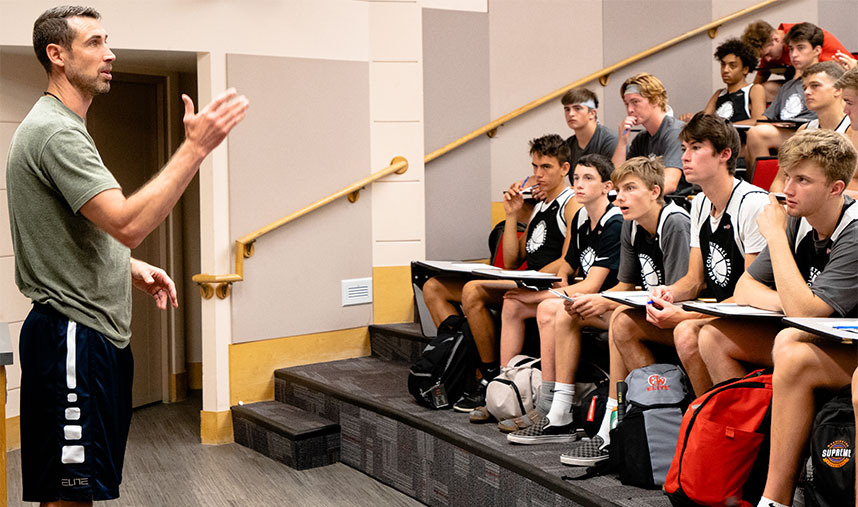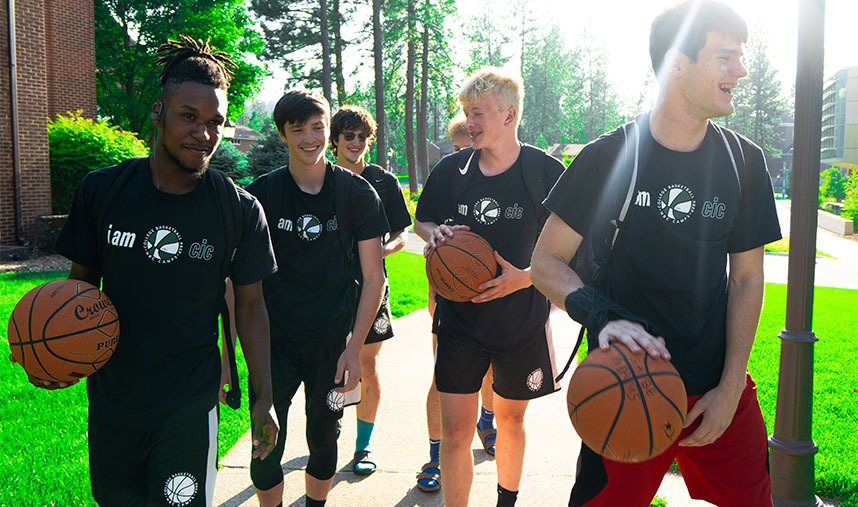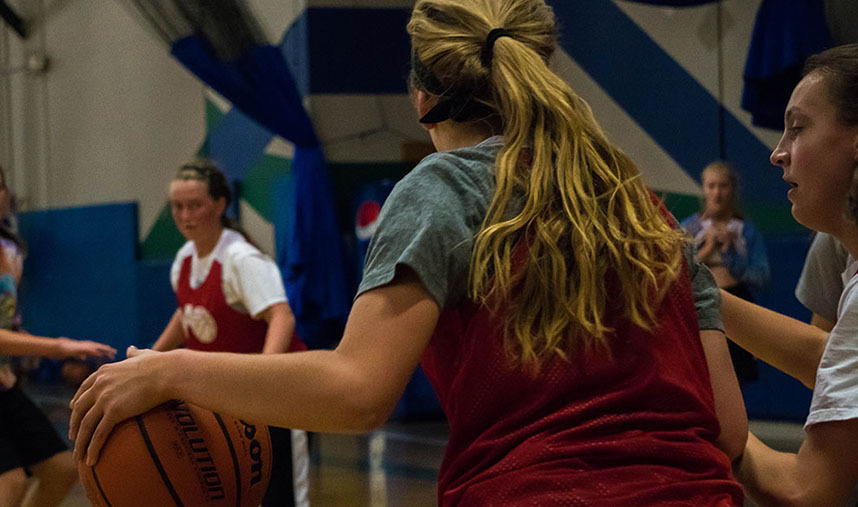April 12, 2023 | Tagged Leadership
Servant Leaders Power of Listening
SERVANT LEADERSHIP SERIES: Servant Leadership and the Power of Listening
What is a Servant Leader?
Everyone leads. A leader is not just the person appointed or assumed to be in authority by position or power. Rather, a leader is a person who moves and influences the family or team toward health and or difficulty. A poor leader moves and influences others toward negativity, disease, stagnation, and alienation. A great leader moves and influences others toward generativity, strength, wisdom, peace and connection.
Think about a family in a home with a huge table for dinner or family meetings. Anyone who comes to that table first is the "tone leader" for the table. If a person creates a complaint/negative tone, he/she may be the difference between a meeting riddled with negativity and a gathering full of love, healing, growth, joy and gratitude. Our leadership influences others for good or for ill.
Servant leaders believe that the mission of the leader is to make those around them better. The family should be better because you are in it, your team should be stronger because you are on it. The powerful aspect of this definition is that I as a leader cannot proclaim my effectiveness, I cannot tout my prowess as a leader, the proof is in the pudding. The family is closer, more connected, more loving, better listeners, more willing to serve others because of my leadership in it or they are not. My team is more successful, have closer relationships, support and encourage one another, get better together, and are stronger because of my leadership or they are not. Furthermore, I can’t fully blame those in authority or a position of power for my miserable plight. I influence others and I am influenced. My influence is powerful, and I am not a victim as a servant leader.
At NBC Camps, we aspire to train our coaches and campers to be servant leaders—people who make those around them better. One of the hallmarks of servant leadership and the first attribute identified by its founder Robert Greenleaf is the ability to listen.
Listening is considered by the Harvard Review to be the most important skill set of a transformational leader. Listening is the ability to gather information both verbal and non-verbal and extrapolate out of the information wisdom, meaning, deeper connection, insight, and truth. Lack of listening is one of the most frequently listed frustration of relationships. Teachers feel that students don’t listen to what they are saying, parents are exasperated by their children, coaches are frustrated by their players and players by the coaches.

What is Good Listening?
If you watch a game with someone who loves a sport, you can learn a great deal about good listening.
Total Devotion: a sports fan is fully engaged with his/her heart, mind, and soul to what they are listening to. They are all in. They listen devotedly and furiously silence anything that could distract them from fully hearing, seeing, or experiencing their game. They are devoted to the experience.
Full Engagement: their mind is active in the experience and is enhancing the listening, not distracting from it. Our mind is faster than human speech. We get bored listening to someone because we can anticipate what is going to be said, we can lose the willpower to stay involved. An active listener to a football or basketball game breaks down the plays, dives in deeply, deconstructs and reconstructs what he or she is thinking. The mind does not wander away from the game but is bringing greater meaning, exploring, studying, critiquing, evaluating, celebrating, brooding, -- all the active aspects of the mind fully engaged in the moment.
Devotion leads to Greater Devotion: the brain of the devoted fan leads to more devotion and greater enjoyment, delight, and investment. The energy increases, the passion elevates, the devotion continues and the listening deepens.

Basketball Listening
There are rhythm and musicality to basketball that many of the great players hear. They feel the game in their core, they respond with fluidity, grace, and instinctive sensitivity to all the players on the court. A great point guard hears the rhythm of the movements. The best players are like jazz artists, they know how to riff on the talents of the other performers. They create with the others something that is transcendent to behold.
The development of this mysterious skill is like developing a third ear attuned to a deeper rhythm.
Do you have the skills of a basketball jazz master?
Take this basketball listening quiz
- How well do you complete your goals?
- How well do you overcome obstacles and barriers to your success?
- How frustrated or bored do you get with mastery of the fundamentals?
- How easily can you create opportunities to score for yourself?
- Have you progressed over the last six months?
- Do you have the same go-to moves that you have always had?
- How consistent is your shooting?
- Would you be considered a player who plays with rhythm and understands the cadence or tempo of the game?
- How well do you improvise in difficult situations on the court?
10 Quick Ways to Be a Better Listener
Pick Two You Need to Improve
1. Put down your phone or anything that is distracting you.
2. Turn your face, body, and attention to the person who is speaking.
3. Be prepared to look for a new discovery and insight.
4. Listen and observe the facial expression, body posture, backstory, words, and tone.
5. Gather information without jumping to assumptions or conclusions. Stay open to new information.
6. Have a meaningful goal for your listening.
7. Avoid your listening pitfalls (distractions, selective listening, hubris, boredom).
8. Respect the agenda of the speaker and be willing to be influenced, educated, or changed by this person.
9. Use your listening to move toward greater health, wisdom, love or insight.
10. Recognize that you may not have all the information and that your partial information can be dangerous to you or others.

Are You An Exceptional Leader?
Four qualities of a transformative leader who wields the power and insight of listening. (Rewording of Harvard Review's article about transformative leadership and listening.)
Great leaders who listen create the best conversations. Just because someone is silent and listens well when someone is speaking doesn’t make them a great listener. The best listeners are not only silent when someone is talking but they are people who consistently create the most stimulating dialogue and interesting/compelling exchange from the listening.
Great leaders, through listening, elevate those around them. Good listeners elevate the confidence of the person they are listening to. They help the person speaking have a positive experience. They make the listener feel safe and supported, energized, and inspired. They evoke the best in the person they are listening to.
Great leaders, through listening, enhance collaboration. Good listening creates a collaborative conversation where feedback can ebb and flow between both parties without defensiveness, combativeness, stonewalling, and posturing to “win the argument.” The dialogue is one of mutual discovery rather than an interrogation or opportunity to find errors in the other person’s reasoning or logic. The dialogue was that of colleagues and friends rather than lawyers and defendants.
Great leaders, through listening, create buy-in for their suggestions. Good listeners make suggestions and their suggestions are viewed with gratitude rather than feel like a put-down or microaggression. Those who receive the good listener’s suggestions believe that they have been fully heard and that the listener can make a full suggestion because they have earned the right based on their full listening. On the other hand, those who make suggestions without being perceived to have fully listened, frustrate the dialogue, and cause the speaker to feel affronted by the suggestions.
Follow up questions for a leader as parent or coach:
- Do your players/family members receive your suggestions for improvement? If not, they do not feel you have listened to them fully as a coach and there is a breakdown in the trust your players or kids have in your listening ability.
- How thorough is your ability to gather information, listen deeply, and suspend judgment?
- Do you listen with the intent to incriminate/criticize or to learn and gain new insights/perspectives?
- Does your team or family admire your ability to listen?
- Does your listening translate into better relationships?
- Does your listening lead to healthier outcomes and greater wellbeing?
- What have you significantly missed in your past that has cost/hurt/limited you and can you uncover what you failed to listen to in yourself and others?
- What does this understanding teach you?

What are You Missing?
How tragic to miss the important messages in life! To fail to hear someone’s cry for help, to miss hearing the key instructions, to tune out the voices of others, and find you are alone.
Selective or poor listening has a root cause that is important to discover in yourself. This root holds insight into ways to repair. So often, people make the goal to be a better listener but because they don’t address the root of the issue, they fall back into the previous patterns of selective or poor listening only to continue frustrating their family and teammates.
The Overtalker
The overtalking leader misses cues. They fail to read the room, they talk over others, they listen to their internal thoughts over what someone else is saying, they like their voice, their ideas, their point of view. This person struggles with selfishness, center of attention, and ego. This leader becomes more in balance by laying aside their will to overpower and dominate others and instead to begin to recognize the power of diversity and another point of view. Myopic dominance is a recipe for big mistakes.
The Non-meaningful Person
The opposite of the over talker is the person who listens but has no personality, internal power, and compulsion for ideas, engagement, efficacy, and wisdom. They are blank and offer a bland engagement to the world. For this leader to become more in balance, they need to take responsibility, ownership, and commitment to the team or family. They should dedicate their loyalty to become fully invested, vulnerable, and alive. They care too much about self-protection and they fear making mistakes. Their silence is an excuse rather than a sign of respect.
The Critic
The critical leader snuffs the life out of the team or family. They kill vulnerability and they create a toxic environment where mistakes can’t lead to better outcomes. This leader has important growth to undergo. Their point of view is necessary as they see what is wrong which is very important, but they are living out of deficit, bitterness, and unconscious cruelty instead of wisdom. As they change to use their insight into what is not working and instead empower rather than crush and discourage, their team will benefit. Seeing what isn’t working is easy. Great leaders lead others to the higher, stronger, and better ground. Criticism can show us what is wrong but it cannot inspire the courage and long-term work we need to become healthy and powerful leaders who make others better.
Action Steps
Write down two or three ways you want to be a better listener this week. Ask someone to help hold you accountable.
Unite the Novice with the Expert to Become the Master
A master is the union of both the passion of the novice together with the experience of the expert. An expert’s value is obvious, they know everything there is to know about a topic. They have become the best in their field. They are hailed an “expert.” They can discern errors quickly, they know, perceive and understand what is necessary and how to achieve what is necessary.
However, there is something that the novice has over the expert. The novice is teachable and willing to listen. The expert can stop learning, stop growing, stop advancing, stop listening. The novice drinks from the fire hose of knowledge, learning, listening, finding new discoveries, awakening into deeper understanding.
A master combines the wisdom of the expert with the curiosity and freshness of the novice. The secret of the master? The ability to listen. To listen beyond what is spoken, what is on the surface. To listen with the heart, mind, spirit.
About NBC Basketball
NBC Basketball began in 1971 as Northwest Basketball Camp and came out of the imagination and desire to combine the intrinsic values of life with basketball excellence. Intrinsic values of mental toughness, grit, resiliency, gratitude, compassion, integrity, accountability, leadership and personal power wielded for good are part of the mission of the NBC staff. NBC now stands for Nothing Beats Commitment and the understanding that a person's daily habits reveal their future. For more information about NBC Basketball and to find virtual basketball training, in-person camps, travel teams, clinics, and events visit www.nbccamps.com.